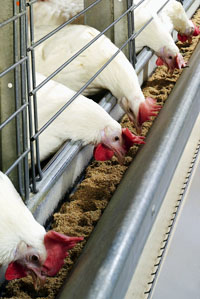Spain needs four years to meet cage ban

Further evidence of the unpreparedness of several member states for the 2012 conventional cage ban has emerged at a meeting of industry experts in Brussels this week.
According to the NFU, representatives of three of the largest producing nations, (France, Spain and Italy), accounting for 39% of EU production, admitted they will not be able to meet the January 1 2012 deadline.
“The French expert said that between 20% and 25% of production – upwards of 8m laying birds – will be non-compliant after the date,” said an NFU report of the meeting.
“The Spanish said that it would take four years to be compliant and the Italian expert gave no figure, but said producers would miss the date. Portugal voiced concerns over compliance too.”
In some of the southern member states, the hot climate is blamed for the slow pace of change, as producers cannot convert to free-range systems because of heat waves, so must invest in colony cages.
But, according to the NFU, the French expert highlighted bank lending as the main problem.
“France was the only country in the EU not to go into recession throughout the credit crunch, so claims that banks are not lending to French growers appear to hold little water,” it said.
The Spanish and Portuguese experts both said rural development money was being used to help finance investment in enriched cages.
The NFU has also expressed concern that the EU Commission continues to duck the issue of what it will do about the millions of illegal eggs that will still be coming from hens in conventional cages after the ban on 1 January 2012.
Health commissioner John Dalli continues to insist that compliance with the Welfare of Laying Hens Directive is a matter for each member state and, if illegal eggs are marketed, the EU Commission may enact infringement proceedings – a process that take several years.
